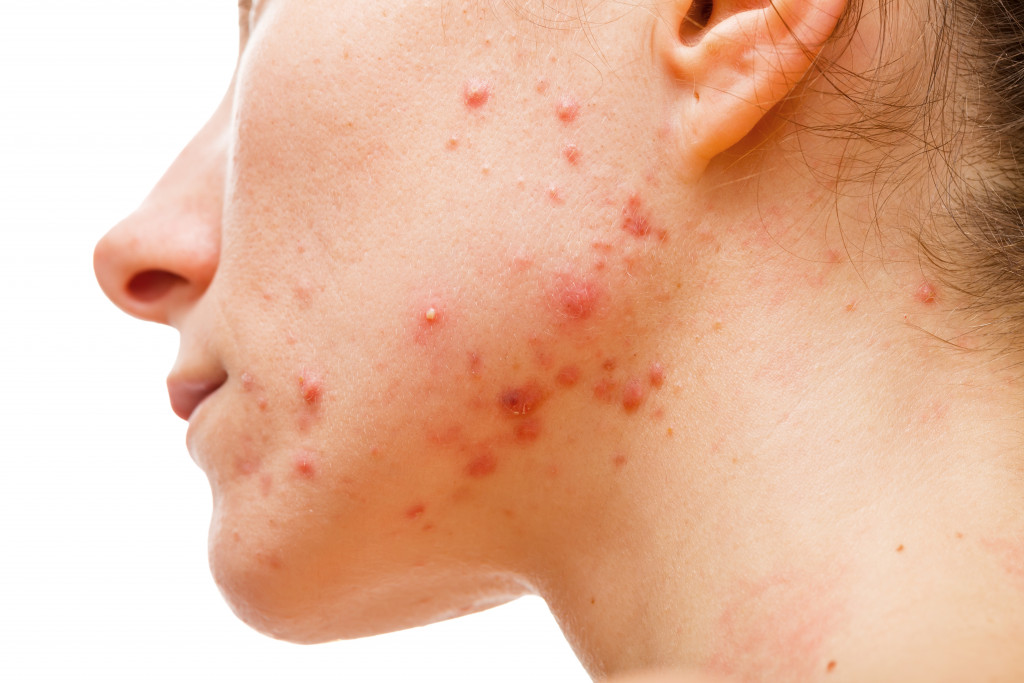- Acne conglobata is a rare, severe form of acne that causes large, painful pimples and scarring.
- Its major causes are genetics, hormonal imbalance, stress, medication use, and poor diet.
- Treatment options include topical treatments, oral treatments, surgery, and preventive measures like derma-planning, keeping skin clean, and avoiding unhealthy habits.
- Genetics can increase the risk of developing this condition, especially if a parent has it.
- Stress can also lead to increased hormones that cause excessive sebum production and clogged pores.
Acne is a common skin condition that affects millions of people worldwide, and acne conglobata is one of the rarest and most severe forms of acne. Unlike other types of acne, acne conglobata causes large, painful pimples that can last for months or even years. It can cause physical and emotional scarring, negatively impacting an individual’s self-confidence and self-esteem. This painful condition requires urgent attention. Here’s everything there’s to know about acne conglobata, its causes, symptoms, and treatment.
Symptoms of Acne Conglobata
The most apparent symptom of acne conglobata is the presence of large, painful, and interconnected acne nodules. They are red and inflamed and can vary in size from a pea to a golf ball. They are often found on the chest, back, and upper arms. In severe cases, the nodules may connect to form deep-seated cysts that destroy the skin’s underlying tissues, leading to severe scarring. Other symptoms may include blackheads, milia, and nodular acne.
Causes of Acne Conglobata
Various things can cause this kind of skin disorder. Here are some of them:

Genetics
One of the major causes of acne conglobata is genetics. It usually runs in the family, and if one of your parents suffers from it, you are at a higher risk of experiencing it too. Studies show that certain genetic mutations can cause the overproduction of sebum, resulting in the appearance of acne conglobata.
Hormonal Imbalance
Hormonal imbalance is another factor responsible for acne conglobata occurrence. This imbalance usually occurs during puberty, androgen production increases and estrogen production decreases. The increased androgen production leads to an overproduction of sebum, which clogs the skin pores, resulting in acne conglobata.
Stress
Psychological stress and pressure have been linked to the development of acne conglobata. When individuals are under stress, the body releases cortisol, a hormone that stimulates the oil glands to produce more sebum and, thus, leads to acne conglobata flare-ups.
Medications
Certain medications, such as steroids, androgens, lithium, and iodides, have been linked to the development and worsening of acne conglobata. These types of medication stimulate oil and sebum production, making it harder to manage the condition.
Poor Diet
A diet high in sugar and dairy products has been linked to the development of acne conglobata. These foods spike the insulin levels in the body, leading to increased levels of androgen production and acne conglobata.
Treatment Options
Thankfully, there are various ways to treat this disorder. Here are some of them:
Topical Treatments
Topical treatments are one of the most common ways to manage acne conglobata. Topical creams, gels, and ointments can help reduce inflammation and bacteria on the skin, helping to heal the lesions faster. These products usually contain active ingredients such as benzoyl peroxide or retinoids that help unclog pores and reduce sebum production.
Oral Treatments
In more severe cases, oral treatments such as antibiotics may be necessary to manage the condition. Antibiotics kill bacteria on the skin, reducing inflammation and preventing scars from forming. In some cases, other medications, such as isotretinoin, may also be prescribed to reduce oil production and clear the skin of acne.
Surgery
In extreme cases, surgery may be necessary. Surgery is used to remove the cysts on the skin caused by acne conglobata and can help minimize scarring. The surgeon will use special tools to cut away the cysts, helping them heal faster.
Prevention
There are various ways to avoid this disorder. Here are the most effective ways to do that:
Remove Dead Skin
Dead skin can choke the skin pores and lead to breakouts. It is essential to remove dead skin cells through a robust derma-planning facial scrub or a chemical peel to keep the pores clear. It uses a medicated solution to remove the outermost layer of skin and reveal brighter, healthier skin underneath.
Keep Skin Clean
It is essential to keep the skin clean and dirt-free at all times. Wash your face twice daily with soap and lukewarm water, as this can help reduce inflammation and bacteria on the skin.
Maintain Healthy Habits
Maintaining a healthy lifestyle is essential for preventing acne conglobata. Eating a balanced diet, exercising regularly, and reducing stress can help keep the skin healthy and clear of acne. Additionally, avoiding smoking and drinking alcohol can help reduce the risk of developing this condition.
Acne conglobata is an incredibly severe form of acne that requires urgent attention and treatment. While various treatments are available to manage this disorder, it is essential to take preventive measures to avoid it. Taking care of your skin by maintaining healthy habits and following proper skincare routines can drastically reduce the risk of developing this painful condition.





